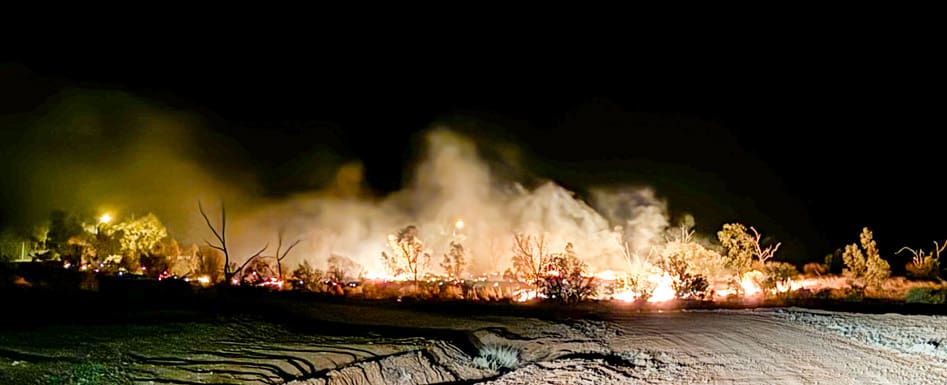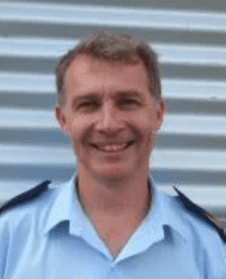THE peak body for rural fire service brigades says changes to Queensland’s fire management has left the front-line completely exposed – with a suite of new positions opening up taking away experienced firefighters from the regions.
With plenty of fuel on the ground following a run of good wet seasons, fires have been burning across large parts of the north and a series of smaller fires in central and western Qld.
The onset of fires has brought up all the same issues that have been raised consistently in recent years, with administrative burdens put on volunteer firefighters and decisions being made from a central location and not by people on the ground.
Rural Fire Brigades Association, Queensland general manager Justin Choveaux said the former State Government had opened up a series of new jobs for paid senior staff. As a result, he said a lot of people working on the ground had taken middle management positions and left the frontline.
“There are now limited paid staff out there to provide those authorising environments who are local,” Mr Choveaux said.
“Plenty of new staff and plenty of new jobs, I think an extra $200m has been spent on employing new fireghters and support staff. But those extra staff were supposed to be frontline support workers, in vehicles, going out and seeing brigades providing training and support.
“Now we have all these new roles, so many people from the local area offices applied for the jobs and left the frontline exposed.”
The RFBAQ has been calling for the State Government to make the rural fire service its own entity with its own board, to give it more autonomy over direction and key decisions made from fires.
Mr Choveaux said a lot of local disaster management groups did not have the presence of the volunteer rural fire service. He said in many cases it meant they were missing years of experience and historical knowledge about specific regions.
“Paid staff move around and because you don’t have a fire every year you generally have a staff changeover between fires,” he said.
“But if you keep local people from rural fire on the LDMG, they live there and they remember what it was like 10-years-ago when the last fire came through. The paid staff have come and gone in that time, for them it is all learning from the start of each fire season.
“There is no baddy in this story, it is just a flaw in the way the system is designed.”
Common sense and teamwork fight Boulia fire
Backing up the same point that tapping into the knowledge of people living in regional communities was the way to manage fires was Boulia producer Ann Britton. She shared an anecdote on Facebook about a fire that came through the area on a weekend. Crews worked together to backburn, using the local chopper pilot to spot fires and eventually put it out.
“The was all done as a team, with Rick (Boulia’s fire chief, Mayor and Ann’s husband) put in charge, and the calibration of knowledge of bush fire-fighting, by the men who gathered,”
“There was no higher up authority or chain of command, authorities were informed of the fire and they were informed it was contained last night and put completely out this morning.
“No doubt someone in town had to do a heap of paperwork today to let the authorities know of the situation, that is my assumption. But at the time of the fire, it was a whole lot of common-sense knowledge, men who knew how to work the machinery, and fire-fighting gear, who worked as a team for one objective for their community at the time of fighting this fire, they would have had each other’s backs and a lot of communication going on.”
Volunteers have never been the issue
Mr Choveaux said it was important to note that Qld has never had issues attracting volunteer firefighters.
“No matter what Brisbane is doing, they will still go out and fight the fires,” he said.
“We have never had issues with volunteer firefighters, the challenge is more about empowering them to participate.”


